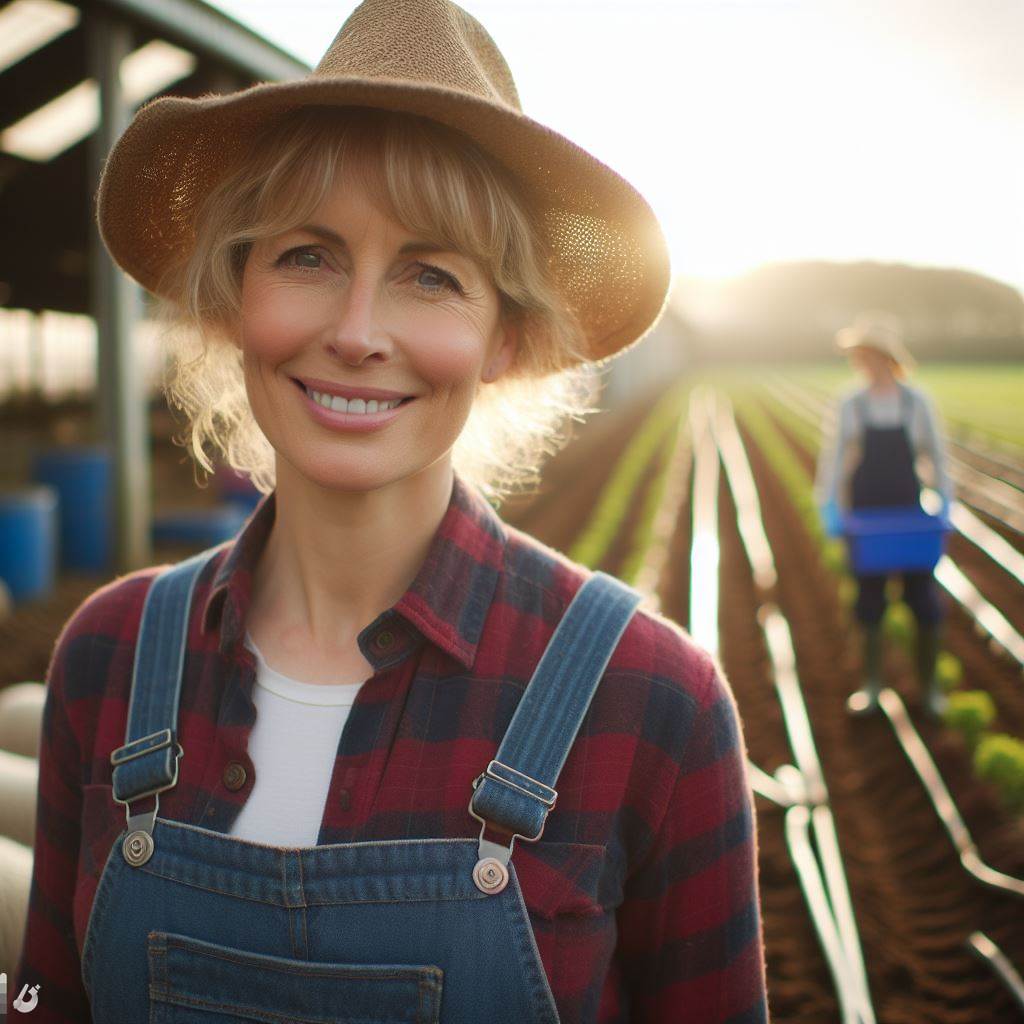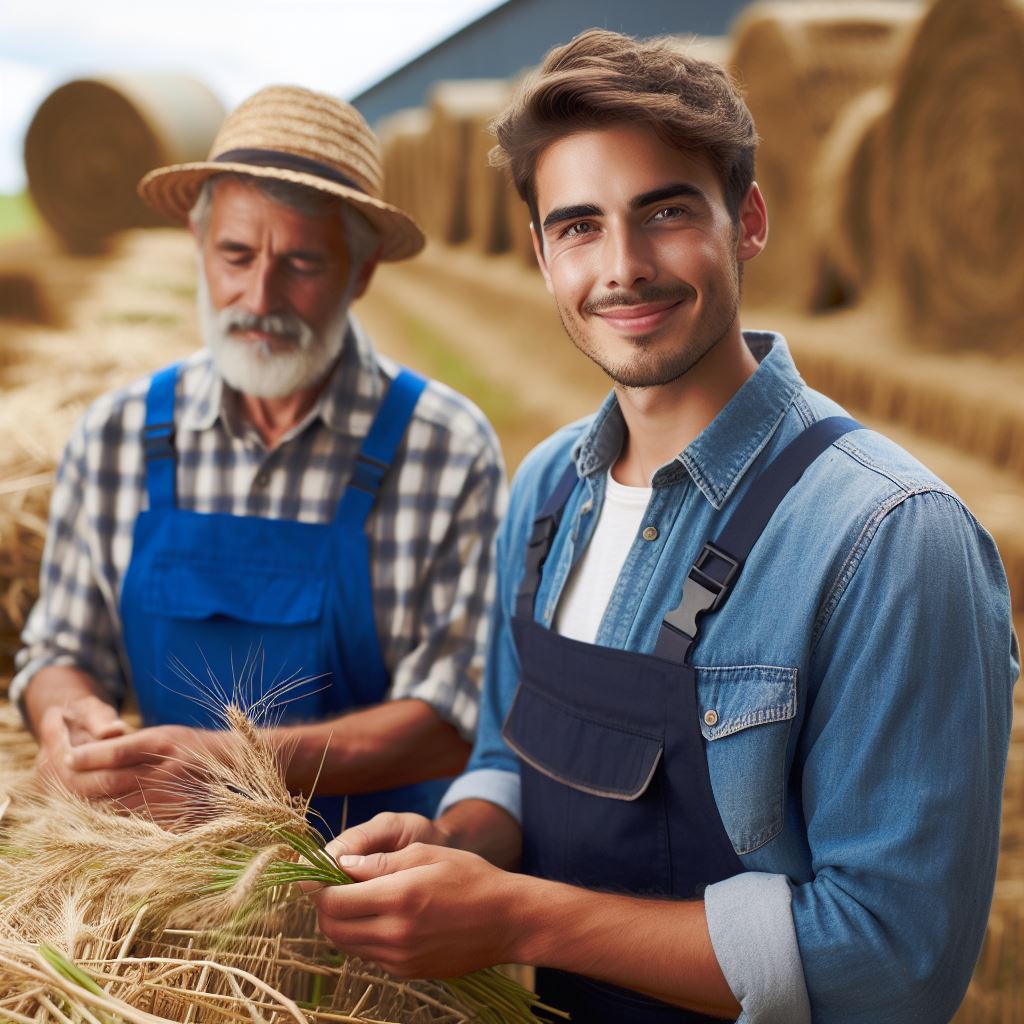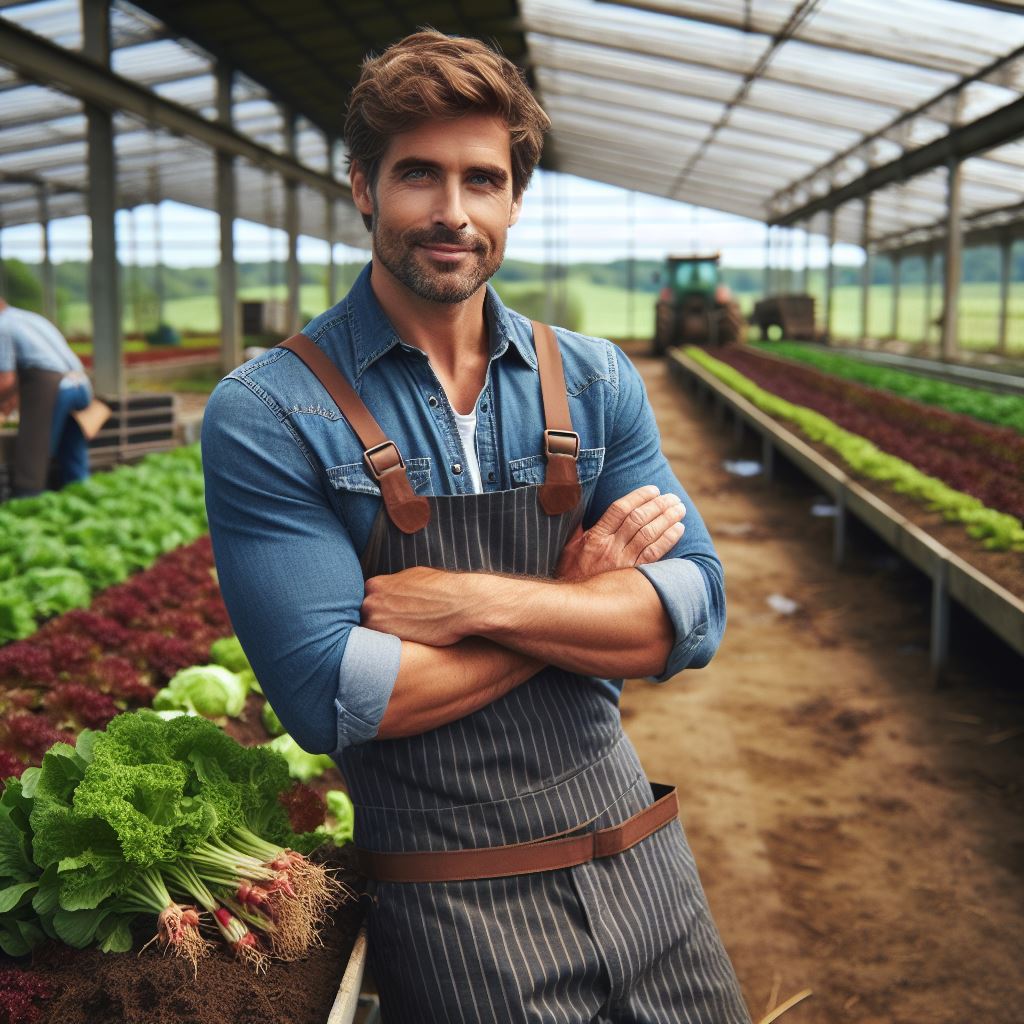Introduction
UK women in farming conquer gender bias, resource limits, and limited leadership roles, excelling in traditionally male-dominated fields like farming, land management, and sustainability.
Women’s resilience, skill, and crucial contributions drive the industry.
They defy expectations, showcasing expertise in managing livestock and driving agricultural innovation. Gender bias and limited opportunities hinder growth by restricting resources.
Bias leads to overlooked leadership roles, despite skills. Unequal resource distribution hampers investment in equipment and technology.
Despite challenges, women create support networks, advocate for equality, increasing representation and inspiring future female farmers.
Understanding women’s experiences promotes inclusivity, diversity, and recognizes their contributions in agriculture.
Valuing their voices dismantles barriers, benefiting women and fostering innovation, sustainability, and a stronger industry.
In essence, recognizing women’s challenges and triumphs is crucial.
Understanding their experiences appreciates their resilience, expertise, and contributions, fostering a more inclusive and thriving farming industry for all.
Historical Perspective of Women in UK Farming
Overview of the historical role of women in agriculture
Throughout history, women have played vital roles in UK farming, contributing to food production and rural livelihoods.
Women have been involved in various agricultural tasks such as crop cultivation, animal rearing, and dairy farming.
While their contributions were significant, they were often overlooked and undervalued.
Women’s roles were considered secondary to those of men, and their efforts were often overshadowed by the patriarchal structure prevalent in farming communities.
Discrimination and limitations faced by women in the past
Women in UK farming faced numerous discriminatory practices and limitations that hindered their progress.
They were denied ownership of land and livestock, which restricted their ability to make independent decisions and investments in farming.
Personalized UK Career Consulting
Receive tailored career guidance designed just for you. Get actionable steps and expert support to boost your career in 1-3 days. Take control of your career now.
Get StartedAccess to education and training opportunities was another challenge faced by women.
Traditional gender roles confined them to household tasks, leaving little room for skill development or career advancement in agriculture.
Furthermore, women were excluded from agricultural organizations and decision-making bodies, preventing them from participating in policy formulation and shaping the future of farming.
Slow progress and changing attitudes towards female farmers
Over time, attitudes towards women in UK farming have begun to change.
Women have increasingly asserted their presence and expertise in the agricultural sector, challenging traditional gender norms and stereotypes.
Organizations and initiatives promoting gender equality in agriculture have emerged, providing women with access to training, resources, and networks.
These efforts have empowered women to overcome barriers and participate more actively in farming.
The recognition of women’s contributions to sustainable farming practices and their role in food security has also helped change perceptions.
Society is acknowledging the valuable input and diverse perspectives that women bring to the agricultural sector.
Numerous successful female farmers and entrepreneurs are leading by example, inspiring other women to embrace careers in agriculture and showcasing the untapped potential of women in the field.
In fact, women in UK farming have faced historical discrimination and limitations, but their roles and contributions have been significant.
With changing attitudes and ongoing efforts to promote gender equality, the future looks promising for female farmers and their triumphs in the industry.
Read: UK Aquaculture Technician: Career FAQs
Challenges Faced by Women in UK Farming
Gender stereotypes and societal expectations
- Women in UK farming face the challenge of breaking through traditional gender roles and stereotypes.
- Society often expects women to focus on domestic tasks instead of pursuing careers in farming.
- Women in farming face prejudice and skepticism about their abilities due to prevailing gender stereotypes.
- Overcoming societal expectations can be challenging, as women have to prove themselves in a predominantly male industry.
Limited access to resources and financial support
- Women in UK farming often struggle to access the same resources and financial support available to their male counterparts.
- Limited access to capital, land, and technology hinder women’s progress in the farming sector.
- Financial institutions may be less likely to provide loans or financial assistance to women farmers.
- Lack of funding and resources can limit women’s ability to expand their operations and compete on an equal footing.
Balancing family responsibilities and farm work
- Female farmers in the UK face the challenge of balancing their family responsibilities with the demands of farm work.
- Juggling childcare, household chores, and farm tasks can be physically and emotionally exhausting.
- The lack of affordable childcare options makes it difficult for women farmers to dedicate sufficient time to their work.
- Balancing family and farm responsibilities requires effective time management and support from partners and the community.
Addressing sexism and discrimination within the industry
- Sexism and discrimination persist in the UK farming industry, posing significant challenges for women.
- Women may face bias when seeking leadership positions or negotiating business deals.
- Discrimination can hinder women’s professional growth and limit their opportunities to succeed.
- Addressing sexism and discrimination necessitates creating a more inclusive and equal environment within the industry.
Lastly, women in UK farming face several challenges, including gender stereotypes, limited access to resources, balancing family responsibilities, and tackling sexism and discrimination.
Your Dream Job Starts with a Perfect CV
Get a tailored CV and cover letter that captures your unique strengths and stands out in your industry. Let us help you make an unforgettable first impression.
Get StartedRecognizing and addressing these challenges is essential for promoting gender equality and empowering women in the farming sector.
By breaking societal expectations, providing equal access to resources, supporting work-life balance.
Fostering an inclusive atmosphere, the industry can thrive with the contributions of women in farming.
Read: Aquaculture Law: UK Regulations Explained

Triumphs of Women in UK Farming
Increasing representation and visibility of women in the sector
Women in UK farming have made significant strides in recent years towards increasing their representation and visibility within the sector.
They have broken stereotypes and emerged as strong and capable leaders in the traditionally male-dominated industry.
Through their hard work and determination, women farmers have proven their expertise and skills, challenging societal norms and perceptions.
As a result, they are now being recognized for their valuable contributions to the agricultural sector.
Female representation in agricultural leadership roles, such as farm owners, managers, and directors, has been steadily increasing.
Women are actively taking on decision-making positions, demonstrating their ability to excel in these traditionally male-led roles.
Moreover, organizations and initiatives have been established to support and promote women in farming, providing mentorship, training, and networking opportunities.
These efforts, combined with the growing number of women entering the sector, are contributing to the increased representation and visibility of women in UK farming.
Success stories of female farmers breaking barriers
There are countless success stories of female farmers in the UK who have triumphed over various challenges and barriers within the industry.
One such inspiring story is that of Sarah, who took over her family farm after her father’s untimely death.
Despite initial skepticism from neighbors and industry peers, Sarah proved her capabilities as a farmer and transformed the struggling farm into a thriving business.
Optimize Your LinkedIn for Success
Boost your LinkedIn profile with a professional bio, keyword-rich headline, and strategic recommendations that attract recruiters. Stand out from the crowd and get noticed.
Optimize NowAnother success story is Emma, who started her own organic farm from scratch.
Despite facing financial hurdles and limited access to resources, she persisted and built a profitable venture while also prioritizing sustainable farming practices.
These success stories not only highlight the resilience and determination of these women but also serve as examples and inspiration for other aspiring female farmers.
They show that with passion, dedication, and hard work, women can overcome barriers and achieve remarkable success in UK farming.
Contributions to sustainable and organic farming practices
Women in UK farming have played a crucial role in promoting and implementing sustainable and organic farming practices.
Many female farmers are dedicated to reducing the environmental impact of agricultural activities by adopting sustainable methods.
They prioritize soil health, crop rotation, and natural pest control techniques, minimizing the use of chemical inputs and protecting biodiversity.
Furthermore, women have embraced organic farming, which promotes the use of natural fertilizers and avoids synthetic pesticides and GMOs.
Their commitment to ethical and sustainable farming practices not only benefits the environment but also contributes to the production of healthier and safer food for consumers.
By championing sustainable and organic farming, women in UK farming are leading the way towards a more environmentally friendly and sustainable agricultural sector.
Empowering and supporting networks for women in agriculture
Recognizing the unique challenges faced by women in agriculture, various networks and support systems have been established to empower and uplift women in the sector.
Organizations like Women in Agriculture and Farming Futures provide platforms for networking, mentorship, and knowledge exchange among women farmers.
These networks offer valuable resources and support, enabling women to navigate challenges, access funding, and further develop their skills.
Moreover, these networks celebrate the successes of women in agriculture, bringing visibility to their achievements and inspiring others to pursue their passions in farming.
Through these empowering networks, women in UK farming are not only finding support and guidance, but also driving positive change within the industry.
They are breaking barriers, challenging stereotypes, and creating a more inclusive and supportive environment for women in agriculture.
Generally, women in UK farming have triumphed over challenges and emerged as strong leaders in the sector.
Their increasing representation and visibility, success stories, contributions to sustainable farming practices, and the existence of empowering networks have all played a role in their triumphs.
By celebrating and supporting women in UK farming, we can continue to empower and inspire future generations of female farmers.
Read: Aquatic Health Management by UK Experts
Explore Further: Arborist Safety Techniques in the UK
Initiatives and Organizations Supporting Women in UK Farming
Initiatives and organizations promoting gender equality in farming
- Women in Agriculture Network (WAgN) provides support, training, and networking opportunities for women in farming.
- The Female Farmer Project aims to amplify the voices and stories of women in agriculture through various media channels.
- The Women’s Food and Farming Union (WFU) advocates for fair treatment and recognition of women in the farming industry.
- The Farming and Wildlife Advisory Group (FWAG) actively promotes inclusivity and encourages women to actively participate in environmental conservation efforts in farming.
Examples of resources, networks, and mentorship programs available for women in agriculture
- The National Farmers’ Union (NFU) offers mentorship programs specifically designed to help women succeed in farming.
- Online platforms like Her Farming Community provide a safe space for women to connect, share experiences, and access resources.
- The Women in Agriculture Leadership Program offers training and development opportunities for women in leadership roles within the farming sector.
- Agricology offers an extensive online resource library with articles, case studies, and videos specifically tailored to women working in agriculture.
Testimonials or interviews from women who have benefited from these initiatives
“Joining WAgN was a game-changer for me. It allowed me to connect with other women in farming who faced similar challenges and provided valuable support and advice.” – Amy, a dairy farmer.
“Through the Women in Agriculture Leadership Program, I gained the skills and confidence to take on managerial positions within my family farm. It has been empowering.” – Sarah, a crop farmer.
“The mentorship program offered by NFU matched me with an experienced farmer who guided me through the process of starting my own farm. I am forever grateful.” – Emma, a new farmer.
“Her Farming Community gave me a platform to share my story and be heard. It’s inspiring to see the collective strength and resilience of women in the industry.” – Karen, a diversified farmer.
In conclusion, various initiatives and organizations in the UK are actively working towards promoting gender equality in farming.
Providing resources, networks, and mentorship programs, these initiatives empower women, foster leadership skills, and create a supportive community within the agricultural sector.
Read: Aquaculture Equipment Essentials in the UK
Uncover the Details: Forestry and Public Health Connection
Conclusion
The challenges and triumphs faced by women in UK farming
Throughout the UK farming industry, women have encountered numerous challenges, such as gender bias, limited access to resources, and a lack of recognition for their contributions.
However, they have also triumphed over these obstacles by showcasing resilience, determination, and a remarkable ability to excel in their roles.
The significance of their contributions to the industry
Women in UK farming play a vital role that cannot be overlooked.
Their contributions are not only limited to their expertise in farming practices but also extend to areas such as sustainable agriculture, rural development, and community building.
They bring a unique perspective that enriches the agricultural landscape.
Supporting and empowering women in farming
It is crucial that our society continues to support and empower women in farming.
Policies and initiatives should be developed to level the playing field, ensure equal opportunities, and provide necessary resources for women to thrive.
We must actively encourage and promote their involvement in decision-making and leadership positions within the industry.
Final thought or inspiring quote related to the topic
“When women succeed, economies thrive.” – Melinda Gates
[E-Book for Sale]
500 Cutting-Edge Tech Startup Ideas for 2024 & 2025: Innovate, Create, Dominate
$19.99 • 500 Tech Startup Ideas • 62 pages
You will get inspired with 500 innovative tech startup ideas for 2024 and 2025, complete with concise descriptions to help you kickstart your entrepreneurial journey in AI, Blockchain, IoT, Fintech, and AR/VR.




